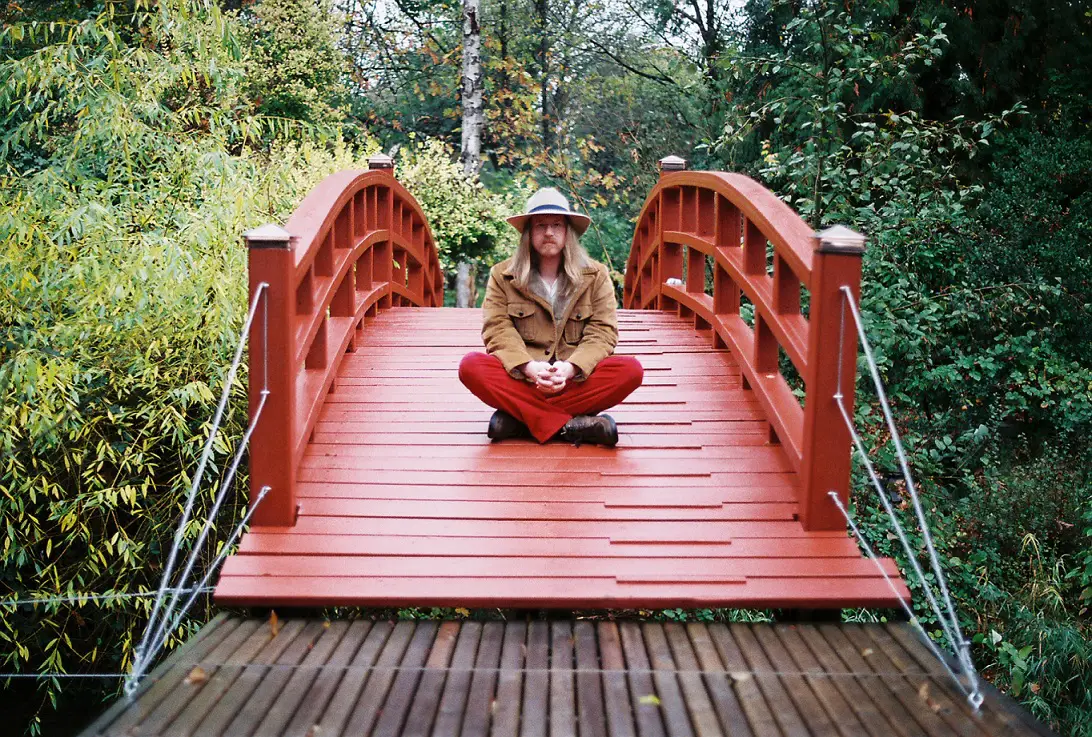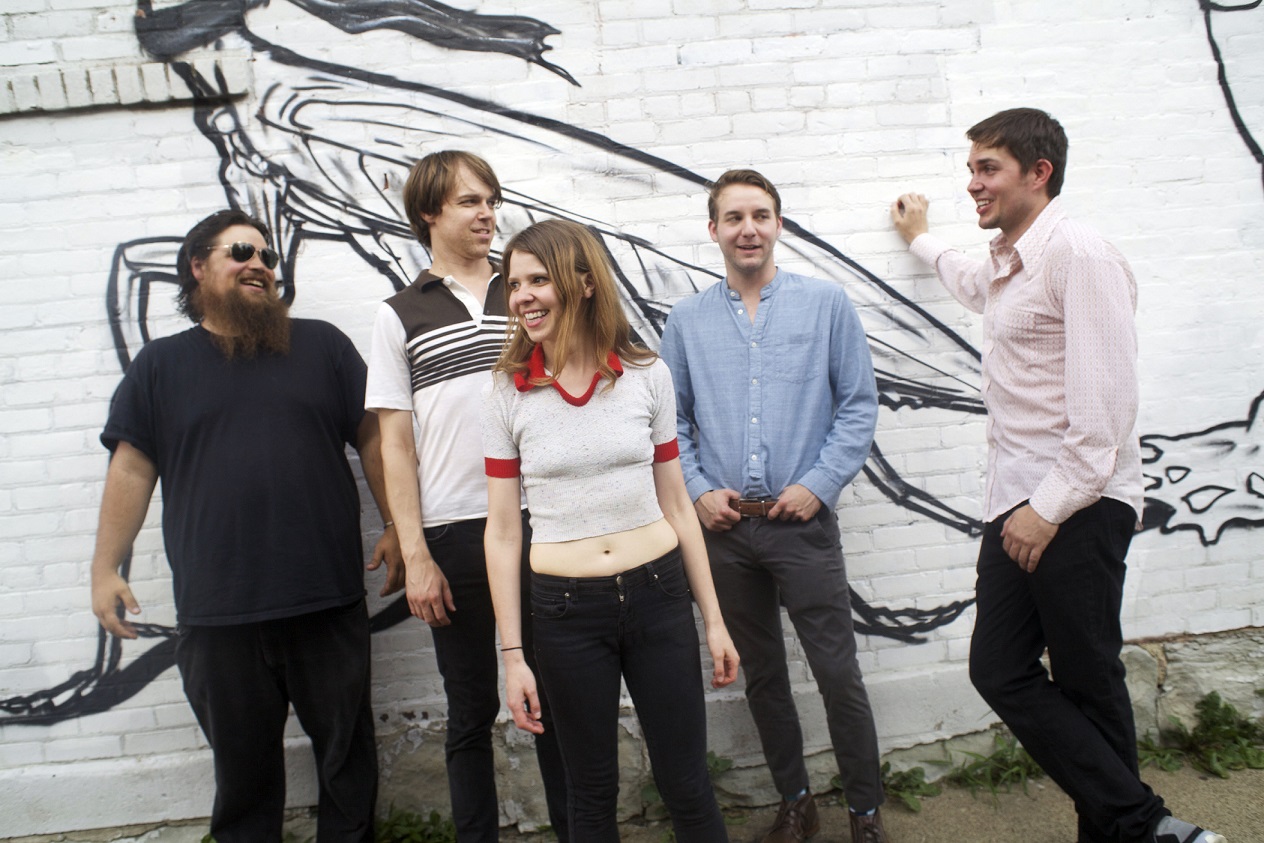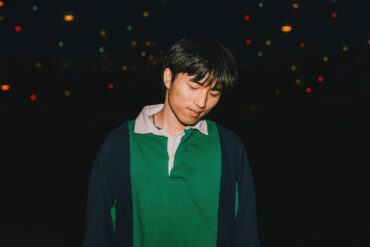Indie folk quartet or “friendship project” Florist consider the small, beautiful moments in the world around us, mortality, and the bad news we cannot escape from on their delicate, thoughtful, and kind of uneven new full-length, ‘Jellywish.’
Stream: ‘Jellywish’ – Florist
I’m thinking about dying again – the only thing that visits my head now…
* * *
And there is, of course, a difference. A fine, or thin line between the two.
And I had not, I do not believe, given it much, if any, consideration before I heard the delicate voice of Emily Sprague, the vocalist and lyricist for the indie-folk outfit Florist, quietly utter the phrase atop the melancholic, sparse, and kind of swaying arrangement of “Started to Glow.”
“I’m thinking about dying again,” she confesses, in a tone that is not quite deadpan, but there is something very matter of fact in the way she says it – as if she is not interested in paying any mind to the gravity of this kind of revelation. “The only thing that visits my head now.”
And there is a difference. A fine or thin line. Between, as Sprague describes it, “thinking about dying” and something else. “Thinking about death.” Because what I have come to understand is that, yes, there are similarities, certainly – there is a place where both ideas converge. And there is, of course, something that occurs within that convergence.
But for as similar as you may at first believe these two things to be – thinking about dying, and thinking about death – or as similar as they may appear, they are truly, and starkly, dissimilar.
I am preoccupied with one more than the other.
* * *
* * *
Time passes. Often in a way that feels uneven, or a little unbalanced.
You give consideration to events, or instances that you are two or three years removed from, and it might feel like that was not that long ago at all. Because it wasn’t. Not really. Certainly not within the larger scope of time, and life.
You give consideration to events, or instances that you are two or three years removed from and it might feel like that was a lifetime ago. Because it was. We continue to change, or grow. Or, we at least hope we continue to grow. Time passes, and within that forward momentum, however slowly or rapidly we feel like it is moving, we find ourselves in a precarious state of potentially trying to cling to the recent past, to perhaps remind us of who we were and where we have been, while always moving further away from it to wherever we are going next.
And I have written about this before, perhaps more often than I should. It keeps happening, you see. Time passes. And, like, for how uneven, or unbalanced, as that may feel, within that, there are things that will undoubtedly move faster than we wish them to. Like the way we are provided information, and how we consume it, or what we do choose to consume, or retain, as more and more swirls around us.
Time passes, and I am both forgetful and not. And I have never been entirely certain about why my memory chooses to hold on – sometimes exceedingly tightly – to some seemingly trivial things, and why it so easily loses its grip on other things, trivial or otherwise. Because I do remember, sometimes with great detail, where I was when I was first introduced to a band, or simply to a specific song.
But time passes, and regardless of how quickly, or slowly, or a strange space in between both of those rhythms that you may feel time and your life are moving, there is always more and more information out there. More things vying for our attention. Films, or television programs to make the time for and watch. Books or articles to sit down with. Songs, or albums that we wish to listen to.
Time passes, and because there is so much, I have found that more and more, I am unable to recall where I have heard about something – where I first found out about the book I wish to read, or the artist, or album, I need to make the time for.
I tell you all of that to tell you this – even though it was just three years ago, it was still three years ago, and I do not recall how I first heard of the band Florist.
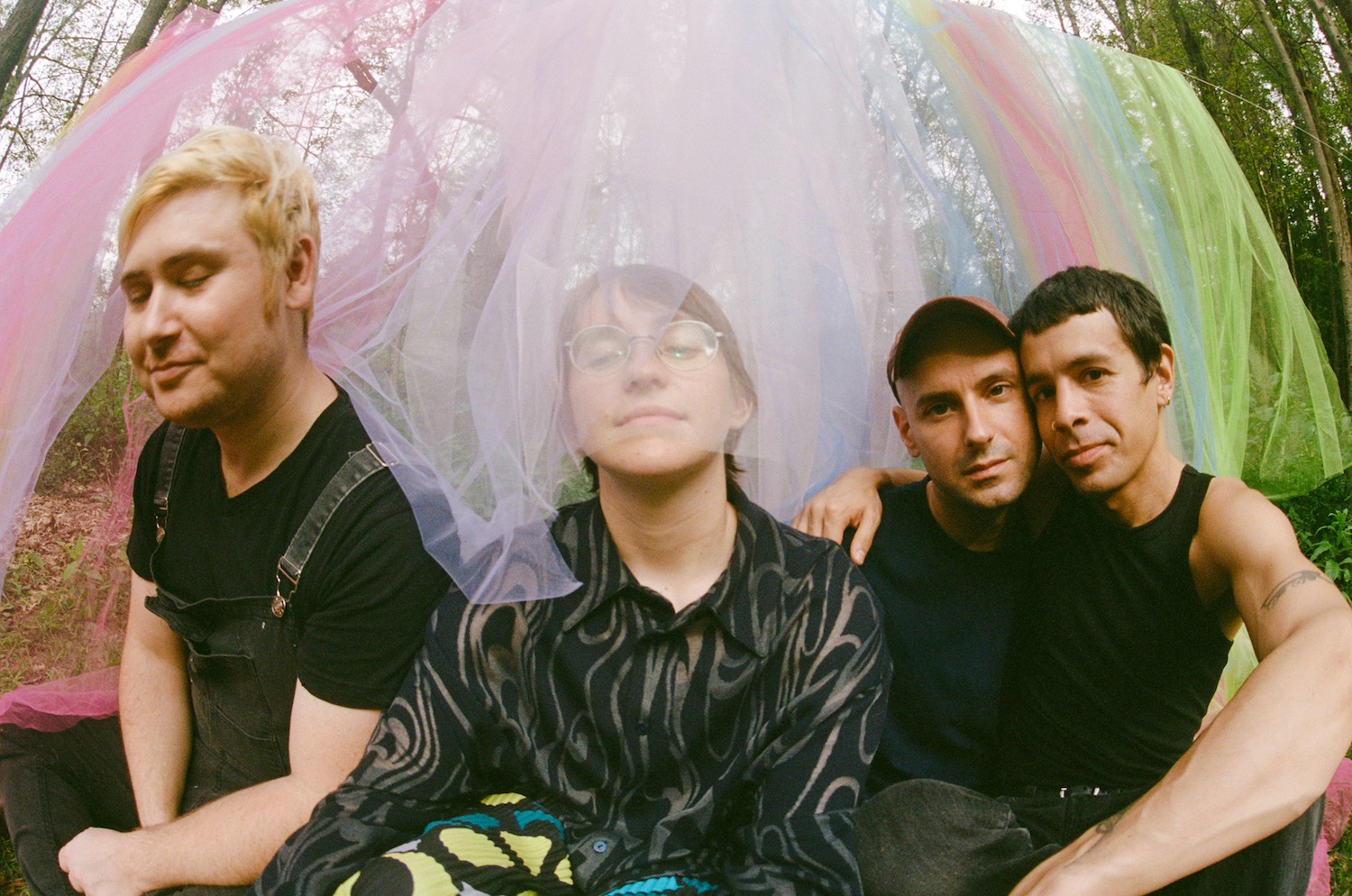
How do you hear about new music? Upcoming releases? New artists that you are perhaps interested in listening to? If you are like me, then perhaps you also put a lot of trust or faith in the recommendations you come across from people you follow closely on Instagram or Twitter. But there are so many avenues with which we can learn, or be informed. I still, for better or worse, read a number of music news sites daily – three in particular, and all of them have their strengths, sure, but they all have terrible, very obvious shortcomings, and I have been, and more than likely will continue to be, critical of them for that reason.
But these are still places to be informed.
That new artist waiting to be discovered. That recently released album waiting to be heard.
There is a very good possibility, even though I do not completely recall, that I first heard of Florist, as the group was preparing to release their sprawling self-titled album in the summer of 2022, through a music news website, and a short blurb about one of the album’s advance singles.
There is a very good possibility, even though I do not completely recall, that the album’s evocative, simple cover art – a hurried sketch of a flower (of course) in muted, darker colors, against a black background, caught my attention, and I felt compelled to listen.
What I do remember is this.
For a number of months, in the spring, and well into the autumn of 2022, I had taken a job that I, unfortunately, knew, within hours into my first day, was not going to work out for me long term, and I was, as the spring turned into summer, and continued to understand the mistake I had ultimately made, trying to make the best of it.
It was a job that did offer a lot of independence, in a way, and I was able to keep one AirPod tucked into my left ear, alternating between music and podcasts to underscore the trudging through my shift.
Florist’s self-titled album was released at the end of July that year, and spread across 19 tracks, the album is more or less evenly split between more traditionally structured “indie folk” songs, and ambient, instrumental, and often experimental pieces, involving effects, loops, and tape manipulation.
What I do remember is this.
After Florist’s release in full, I had made a playlist of these ambient, instrumental pieces, to listen to while writing, yes, but also to have playing softly in my left AirPod, as a means of solace, as I made my way through another workday.
What I do remember is this.
Nineteen tracks, at least at first glance, is intimidating – released as a double LP, Florist, in in the way it effortlessly oscillated between the experimental and an often hushed, and introspective nature, is not inaccessible by any means. There is a gentleness to the project that often makes it rather inviting. But it was a daunting album. Or a little intimidating, simply in terms of finding a way into it, and giving it analytical consideration.
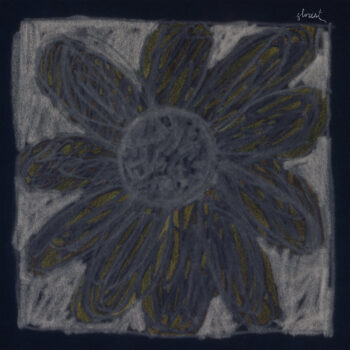
It takes time. And time passes in ways that feel uneven or unbalanced. We do not feel like the events or instances that we are two or three years removed from happened all the long ago because they didn’t. Not really. But they also did. It could feel like a lifetime ago because we continue to grow and change and remove ourselves further from that time.
What I do remember is this. That there was, and there still is, in revisiting it, a real warmth to Florist, as an album. But I think that has to do largely with how it was created.
In the short bio on the group’s Bandcamp page – both in 2022, and still today, Florist refer to themselves as a “friendship project,” which I find to be an incredibly endearing description. And I think that does really add to the kind of warmth, and closeness, or intimacy, that the self-titled album had – the band rented a home where they temporarily resided, recording the album in a studio space built within the home’s screened-in porch, making the work on the album part of their “daily practice” of living together, as Emily Sprague explained in an interview during Florist’s press cycle.
I am remiss to use the term “fearless” to describe that album, because I don’t think that is exactly the right descriptor I am looking for, but there is this kind of unconfined, or open and supportive feeling to it. It was an imaginative album – freeing, or “freewheeling,” if you will. Ambitious in how it was constructed and how it ultimately arrived into the world. Gentle and welcoming.
I tell you all of that to tell you this – Jellywish, Florist’s fifth album (though technically fourth as a group, which is a bit of an idiosyncratic detail, I know), has warmth, sure. It is often inviting, or welcoming. I would never say, even when it meanders, at times, into a kind of hazy, psychedelic space, that is never inaccessible – and in fact, often does favor a kind of infectiousness in many of its song structures.
But there is a different kind of warmth coming from it. A slightly different invitation to listen. And this is not to say this is particularly bad, nor is it good. It is, I think, just how this album exists, in the moment in time. And it is just what, each time I sat down to listen, I noticed, and it did ultimately become my experience with the album the longer I spent with it.
Time passes. We continue to grow and change. Florist, as a band or a “friendship project,” continues to grow and change as well, and Jellywish is the sound of the band’s continued growth over the last three years.
* * *
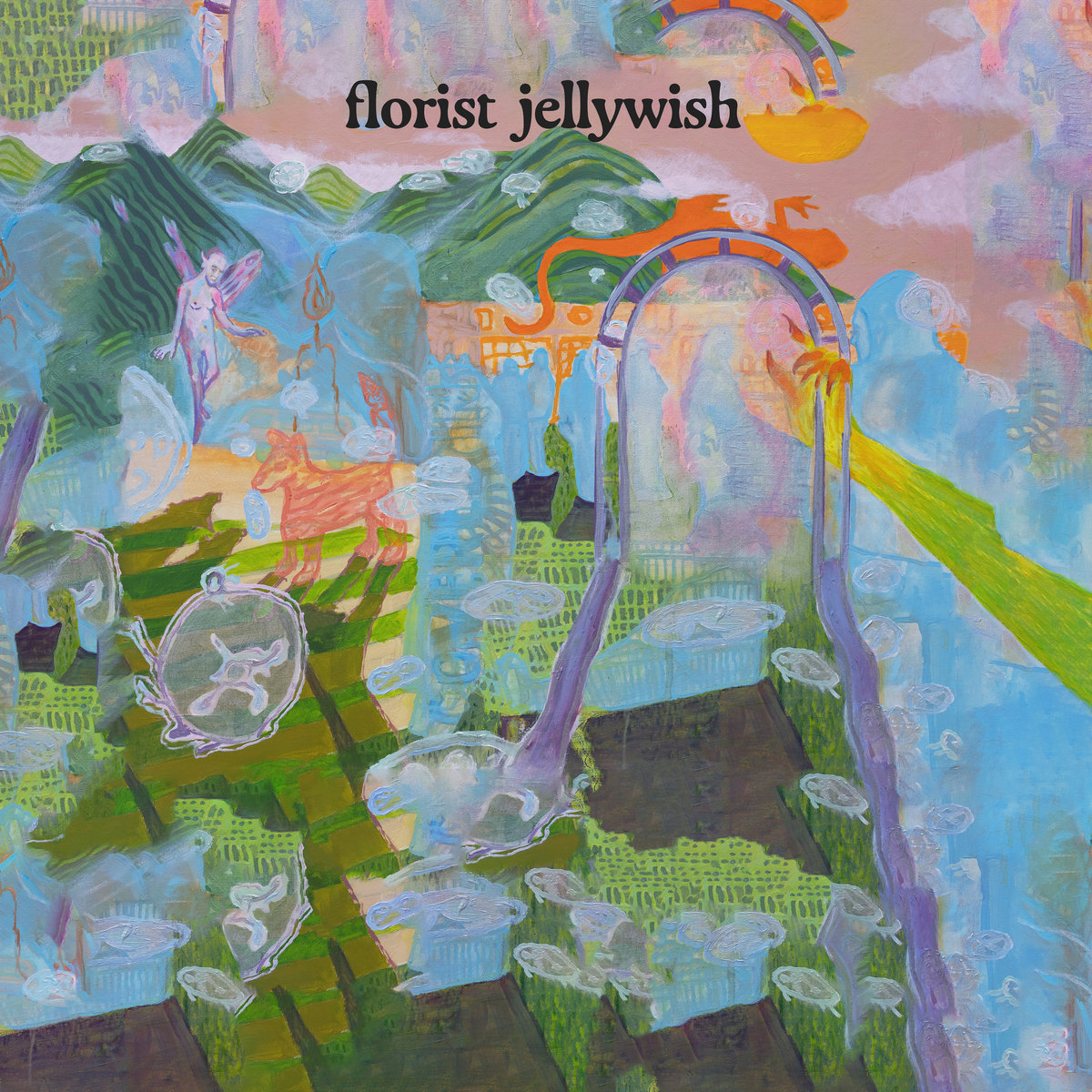
What does it mean to dream of a car crash?
It’s funny that the start is what shows us to the end – and the end is all I know.
* * *
Something that I had not given a lot of consideration to up until maybe two years ago, and something that I am still certainly working on, or becoming more comfortable with, in terms of both critically listening to music, and listening for leisure, is that there are certainly songs that have lyrics that do require analysis. But there is also music that is, as my best friend often describes it to me, “vibe-based.” Music that is less concerned with lyrics that need to be combed through for some kind of larger meaning – music that is much more concerned with having fun, and wishing for us, as listeners, to have fun along with it.
There was a very obvious duality in the 19 songs included on Florist – a band becoming tighter, and having more trust, or faith in one another, both as people but also as co-workers, of sorts – and that duality arrived in the sound of both what, for lack of a better descriptor, I would call more traditionally structured or “actual” songs, and the experimental, instrumental, ambient compositions that are woven into the fabric of the album.
There is a duality to Jellywish as well, I came to understand. It is a concise album—a spry 10 tracks, and in that conciseness, there is also a feeling of efficiency, or maybe just a more precise feeling. The band still sounds tight—perhaps tighter than they were before in how they work together. And, again, it is an inviting album, where there are moments of warmth, but overall these songs are lacking the kind of looseness or freedom, or intimate invitation that was found in its predecessor.
The duality, then, comes in the way it walks the line between songs that are more skeletal or sparse in their arranging, with little if any accompaniment outside of Sprague’s gently plucked acoustic guitar and her delicate, often somber voice, and the songs where the rest of the group is involved. If there is a freedom, or looseness to be found on Jellywish, it is in those moments where Sprauge is joined by her bandmates—Rick Spataro on bass, Felix Walworth behind the drum kit, and guitarist Jonnie Baker—because while the quartet usually does remain within the soft, introspective “indie folk” sound that I think suits them the best, there are a few places where the group indulges in a hazier, swirling kind of sound, like in the whimsical and infectious second track, “Have Heaven,” and at the top of the second side, on “All The Same Light.”
The end is all I know.
Not everything has to be poignant.
I understand that. That there is music that does open itself up for a kind of deep lyrical analysis, and that is what I am often drawn to the most as a listener. But there is also music that is less about the lyrics, and is more about trying to create a feeling overall.
But there is a weight, and often a poignancy to Sprague’s writing. It’s evocative. It’s regularly poetic, if not fragmented or a little vague in how it arrives.
“All The Same Light” is one of the places on the album where Florist strikes that duality—it opens, after the faintest of atmospheric, synthetic rippling, with the gentle, pensive, and rhythmic strums of Sprague’s acoustic guitar, before she’s joined by the rest of the group, right on time, at the start of the second verse, with a strong bass line, finding its place within the layers of the song and rumbles subtly, while the percussion, as it often is throughout the album, is absolutely fascinating in how it is recorded and then dropped into the mix—there is a crispness to how it sounds, but the rhythm itself is so delicate and certainly restrained in how it sounds.
Jonnie Baker’s electric, lead guitar work comes in close to the end of the second verse – at first, just some complimentary notes resonating through the other instruments, before “All The Same Light” does, for its final minute, descend into a hazy kind of psychedelia, with those complimentary notes turning into a heavily effected, wandering guitar solo that takes us through to the end of the song.
The end is all I know.
Not everything has to be poignant, and there is, certainly within the last minute of the song, a shift in “All The Same Light”’s focus, moving from Sprague’s fragile voice and introspective lyricism to something certainly more vibe-based. But before it takes this turn, it is one of the songs on the album where Sprague shares a handful of memorable, or resonant phrase turns.
“What does it mean to dream of a car crash,” she asks, early on in the song. Then, just a few lines later, allowing her delicate voice to lift into a slightly higher range, she observes, “It’s funny that the start is what shows us to the end—and the end is all I know.”
She repeats the line, though changes one word, towards the end of the song—with the change really adding to the poignancy within “All The Same Light.”
“It’s funny that the start shows us to the end – and the end is all I am.”
The end is all I am.
I stop short of saying Sprague is preoccupied with the notion of death, or “the end,” but this idea has been present, in one way or another, in nearly all of her output with Florist, beginning with 2017’s If Blue Could Be Happiness, and its follow up, Emily Alone, from 2019, both of which were directly inspired by the passing of her mother. She also addressed that in the sprawling and vivid narrative “Red Bird Pt. 2 (Morning),” from Florist, and she does briefly reference it here, on Jellywish, in the album’s closing track, “Gloom Designs.”
And there is a duality, or a contrast of sorts, found within the way “Gloom Designs” unfolds. Musically, there is a lightness to it—a sort of melancholy, or introspection, certainly, in the way Sprague’s fingers dexterously pluck away at the acoustic guitar, but it moves along with a kind of bounce that doesn’t allow it to completely descend into a pensive bittersweetness. “Gloom” is one of the songs that is more sparse, or spectral, in how it is arranged—with the rest of the band not joining Sprague, and her only other accompaniment arriving in the form of some atmospheric flourishes and noises, or field recorded sounds, that skitter throughout.
“In my life will I see the day when we can be face to face,” she asks in the opening line. “I was only 22 when I lost you,” she continues, addressing her mother, then addressing the passage of time that has occurred in the interim.
“The world is changing – we’re getting farther away. So the computer is getting pretty smart,” Sprague observes. “I’m turning 30 in a few months,” she explains, then makes a sudden and surprising aside both to herself, as perhaps a relation, and to us, as listeners. “It’s not okay. It’ll never be okay. Honestly, I’m getting kind of sick of talking about this.”
As “Gloom Designs” continues to delicately swirl, Sprague’s lyricism oscillates between her introspection on the passage of time, and its intersection with mortality, with larger observations. Jellywish is not really a political album, or, like, a politically charged album, but it is impossible not to see the things happening both within the United States and abroad and to not have those have any kind of impact on how you feel or what you experience day to day.
“It’s been a bad time for a lot of humans,” she states midway through the song, then returns to this line of thought near the song’s conclusion. “Humanity – what have we done to this? Is there nothing left to trust?,” she asks, with no answers, easy or otherwise, given. “Absolutely out of control.”
I stop short of saying Sprague is preoccupied with the notion of death, or “the end,” but as “Gloom Designs” slows itself down and finds its way to an ending, and certainly throughout Jellywish from start to finish,, it is her rumination on death, or dying, or “the end,” that does really linger long after the album has ended.
“It’s been a long time since we laughed until we cried,” she confesses. “It’s been a short time in the entirety of life,” she continues, before really punctuating this part of the song.
“I want to know what exists between the veils.”
The end is all I am.
* * *
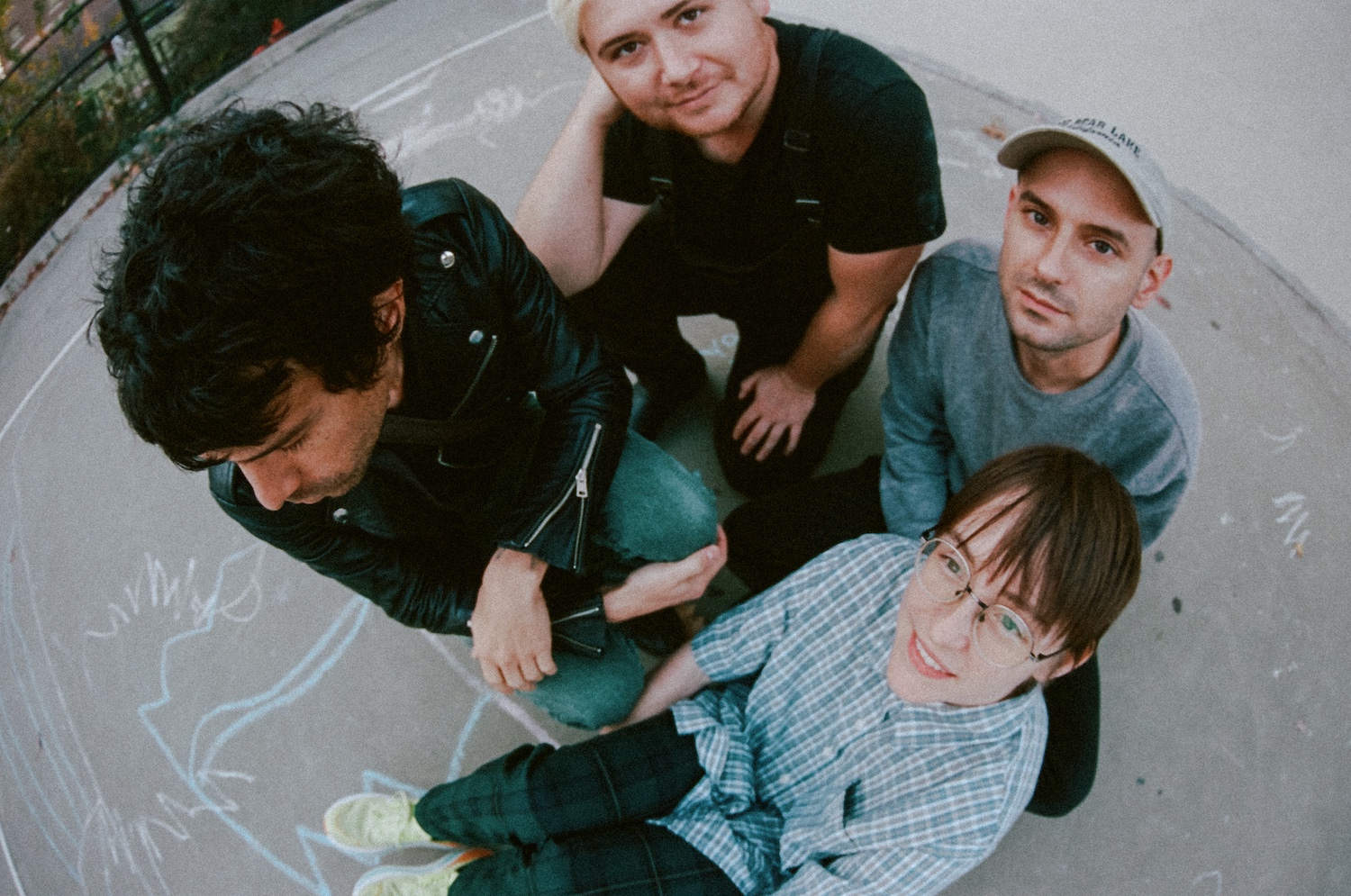
Isn’t it amazing – that we get to share this life…
* * *
Florist, as a project with Emily Sprague at the helm in terms of lyricism, is inherently introspective.
Her writing here in a number of places is dark, certainly, but Jellywish is not a bleak album. And that is, of course, a delicate balance—to be aware of both an existential kind of dread and a much larger or difficult-to-grapple-with kind of bleakness or sorrow and try to practice a little restraint in how all of that is then presented.
And for as much as Sprague does wish to, at times, explore the crumbling state of the world, and continues to reflect on mortality and the burden of the human condition – there are surprisingly tender, and rather sweet moments to be found here as well.
Placed near the top of the album’s second half, “Sparkle Song” is Jellywish’s softest moment, just in terms of the sentiments that Sprague shares, as well as in the sparse, yes, but much lighter in tone arranging that accompanies her—again, this is one of the songs where she performs with minimal additional instrumentation, and outside of the flickering of her fingers across her acoustic guitar, she is joined here by additional acoustic guitar flourishes during the chorus, as well as the notes ringing out from a cavernous sounding upright piano, punctuating certain moments within the song as it finds its momentum.
The sentimental observations, or reflections, of “Sparkle Song,” as well the overall gentler tone it takes, are not out of place exactly, within the larger context of the album, but rather, I think they provide a pleasant reprieve, and if anything, Sprague’s poetic and slightly saccharine musings give us a reminder that even when it is extraordinarily bleak out there, in the world, at large, or simply just within ourselves, and the often tumultuous nature of existing, that there are small, good things in our lives—often a loved one, and “Sparkle Song” ofter an opportunity to appreciate them within a hushed kind of intimacy.
“You look out the window,” she begins early in the song, her voice rising slightly, and her finger plucks at the guitar, finding a natural rest to punctuate the moment. “I hope that you see something pretty. Isn’t it amazing – that we get to share this life.”
And for as sweet, and tender as the lyrics, or at least the intent, of “Sparkle Song” are, it isn’t all romanticized vignettes, as Sprague does try, and I think it is successful, in walking a line between a hushed intimacy, and the kind of more intrusive things you hope the hushed intimacy is enough to distract you from.
“I worry about the future,” she confesses. “For now, you’re walking by my side. There’s no evil in your eyes,” she continues, before shifting back into another tender moment shared with a loved one, before giving consideration, as we all certainly do, to the balance of affection within a dynamic – romantic or otherwise. “You and me running ’til we both want to lie down,” she recalls. “I worry that I don’t give enough and you easily give everyone love. Why is it so hard to be a good person?,” she asks, and without waiting for an answer, continues through this thought process.
“Something simple makes you so happy – how can you be in this reality? You should take my life instead. What’s the point if we’re not living,” Sprague adds. “I can’t think of anything better – stay with me for a while. I believe in you, and our power.”
“Sparkle Song” works its way back, lyrically, to how it began, as Sprague leads it towards a conclusion, remarking on something that I do find myself often doing more and more—where, each day, you wish the absolute best for someone you feel a closeness or fondness for, and in turn, that someone often wishes that back to you. “Today, the sun is shining—you look in the shadows,” she observes.
“I hope that you see something better.”
* * *
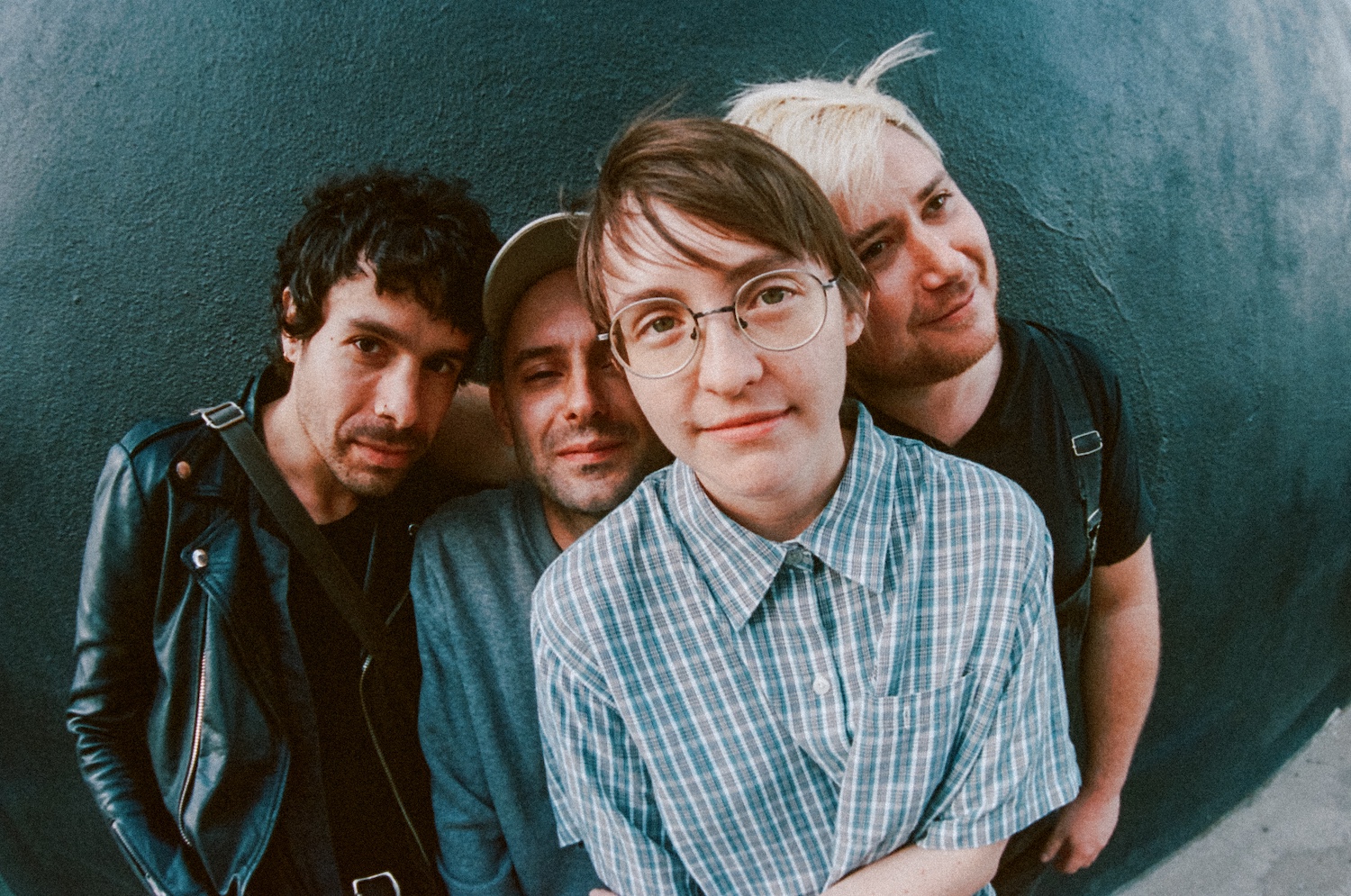
* * *
There is a duality found on Jellywish –
the balance between songs that are more or less focused on Sprague alone, or with minimal additional elements joining her, and the way that Florist works as a band or a “project” and the kind of confident, sonic strides they’ve made over the last three years. The balance works, certainly, creating a natural kind of give and take within the rhythm of the album, but it is most fulfilling when the group finds themselves truly working within not their “comfort zone,” per se, because the places where they do wander away from that are certainly compelling, but working from the place where they easily lock into that kind of crips, warm, gentle “indie folk” sound – certainly a familiar kind of feeling – are the moments when the album is, in terms of its aesthetic, the most successful and enjoyable to listen.
And there is a very palpable somber, sleepiness built into that – an “indie folk” vibe. It can be soothing, with a quiet kind of allure that you find yourself compelled by. And tucked at the end of the album’s first half, “This Was a Gift” certainly is one of those moments – somber, a little drowsy, quietly alluring, and soothing in how it gently pulls you into the slow-motion groove the group conjures without effort when the elements tumble together.
A small thing of note, and maybe it is just me, and my ears, but with each listen of Jellywish as a whole, in arriving at “This Was A Gift,” it gives me a different sonic feeling – not like it is out of place. Not really. It is a little moody, a little somber, and very gentle overall with how it unfolds, so it does fit in well with the other moments on the record where Florist is operating as a four-piece band. It is just something about how it sounds – there is a sharpness and clarity to it that isn’t lacking elsewhere, but it is seemingly heightened here. The percussion is extra crisp and snappy in how it keeps time with restraint underneath Sprague’s guitar playing and her vocals, which appear just a little louder and a little clearer than they are in other songs. It’s strange. But for a song that is certainly more on the introspective, sorrowful side, the way it sounds gives it this little bit of exuberance.
“Gift” opens with both Sprague’s voice, and the strum of her guitar, before the rest of the band joins her on the song’s surprisingly infectious chorus – a kind of head-nodding groove descends and the use of repetition in the words sung, woven into a rhythm that skitters, or skips slightly. And while even though there is a hypnotic feeling to what the band has created, it is inherently mournful in how it sounds – specifically in the punctuating lead guitar flourishes that are sprinkled throughout the second verse, growing a little more distended or crunchy in sound, and becoming, by the end, a kind of additional melody that floats freely, complimenting Sprague’s pensive lyricism.
Sprague’s writing here is where the ideas running throughout the album kind of intersect – not completely, but enough, as there is a kind of balance struck between the preoccupation with mortality, and the tenderness we show to those we care for.
“Can you describe it to me now,” she asks, early in the song. “How you feel being alive,” she adds, before the rest of the band tumbles in and creates that skittering, hypnotic feeling as Sprague repeats the line, “Only the dead survive,” before backing herself out of it by observing, “Only the home I have is with you in mind. Sometimes the heart is right – sometimes it makes it harder, and we lie.”
The end of the song, before it wanders into another hypnotic, dreamy space, finds Sprague pleading, in a way, or looking for validation, or an assurance. “Love is the final piece to this,” she exclaims. “I just want music in my life. I just want us to sing along.”
“Gift” ends, as it opens up through the assistance of the lead guitar melody, with Sprague repeating the line, like a mantra, or kind of assurance in return to someone, “I’m your guy… until I die.”
* * *
What makes you fall down and cry…
* * *
And if you are a listener like me – analytical in terms of lyrics, learning how to be appreciative of artists and songs that are simply trying to create an overall vibe rather than something that has an obligation to a deeper or larger meaning, perhaps you also often listen with a sort of wistfulness, or are someone who insists on connecting certain songs or certain albums with a specific time of year.
It doesn’t always have to be the time of year that you were first introduced to the song, or the album, or even the artist—though that often helps, certainly, solidify that connection. But it is, I think, an extension of that listening for and appreciating the overall vibe, rather than scouring through the songwriting for something that you can apply to your own life. Because this connection to the seasons, or to the time of year, is more about the feeling that the music gives you.
I do not have that many “springtime” albums, or songs. If you are a listener like me, perhaps autumn, and winter, are the two seasons that you are able to make this kind of connection to with ease. I would argue that Jellywish, even though it is arriving into the world in spring, is not a “springtime” album, in how it feels. However, I would add that there are moments included that, in how they sound, and how that feels, conjure the kind of gentle melancholy of autumn.
Now, can I ask you a question – can you ask it to me, too
The album’s penultimate track, “Our Hearts in a Room,” is one of those places, I think primarily because of the very sweeping, stirring arranging and instrumentation used – after a short introduction featuring some squiggly, warbled effect noises, the clearest elements of the song all tumble and swirl together, moving slowly but quickly finding their way into the rhythm and progression of the acoustic guitar strums, mournful, somber piano chords, and the delicate brush of the snare drum under it all.
“Hearts” moves at a deliberately slower pace, swaying, really, and it really does give the feeling of a cool autumnal day—the sun warming you just enough, the leaves turning bright oranges and reds, before drifting to the ground below as a breeze sweeps through.
Lyrically, there is a contemplative and questioning nature to Sprague’s writing on “Hearts” – a lot being asked of someone, or towards someone, and it is a space where the kind of poignancy or larger scope that she incorporates into her writing on Jellywish converges with the tenderness and the hushed intimacy, or closeness, that is found in a song like “Sparkle Song.” The statements posed are not rhetorical, I do not think, but it is, in its inquisitive nature, one side of a larger conversation about life, and the ways we grow into it, both as ourselves, but also alongside someone we care for.
“What is wrong with the life you’re on,” Sprague begins early in the song. “What makes you fall down and cry?” she continues. Then, a few lines later, continues on with her introspection. “Now, can I ask you a question—can you ask it to me too,” she explains. “Is this all you’ve ever wanted? Is it all you believe is true? Is it our dream collided? And is that you?”
Those lines are repeated, then, towards the song’s conclusion, but prior to that, Sprague continues to find that balance in her writing and observations, between the insular, or more personal, while still trying to reflect on things outside of herself – accomplishing it with a very admirable kind of grace. “Life on Earth,” she begins. “Singing birds – a lot of pain, a lot to give away,” she adds, before shifting perspective and writing in a way that does make a small reference to imagery mentioned elsewhere on Jellywish.
“You in love looks a lot like you just standing in the sun.”
* * *
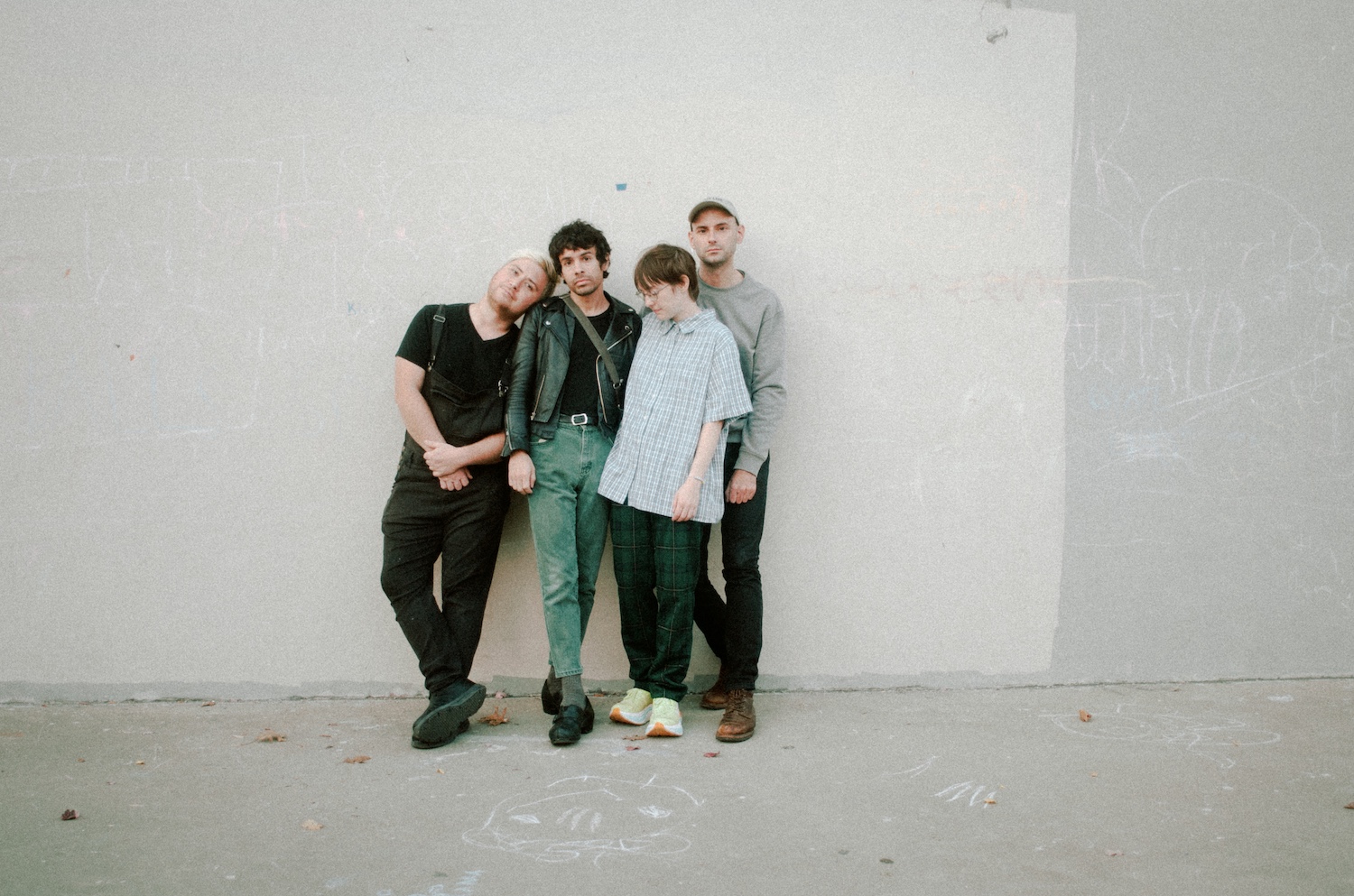
Every day, I wake – wait for the tragedy…
* * *
And there is, of course, no shortage of bad news these days.
I mean, there never really was a time when there wasn’t bad news. It just seems, I think, in recent years, that the news of the world continues to get worse, and worse.
And it can be hard – sometimes seemingly impossible, to make it through the day, during a time when information is available to us so quickly, and moves much faster than we perhaps wish it would, without hearing something, or seeing something, that is going to upset us. That is going to ruin our day. That is going to unsettle us. Or anger us. Or disappoint us.
There are days when I understand the allure of obliviousness. Of not reading headlines. Of wishing not to be informed, even in the slightest. You can tune things out as much as you are able to. Lowering the volume until you can barely hear the noise that is deafening to everyone else around you.
Jellywish begins quietly. A means, I think, of gently guiding you into the duality it will try to balance through the nine songs that follow the delicate opening track, “Levitate,” which bounces along as lightly as it can through the brisk, folksy finger plucking of the acoustic guitar, joined by the occasional, atmospheric fluttering of piano keys, or other noises. And it is that light bouncing that does offset the stark nature of Sprague’s writing—the album begins quietly, yes, but “Levitate” does not practice any restraint in terms of the severity within its lyrics, and in a sense, it does subtly introduce the themes that course throughout the record.
“Every day I wake,” Sprague remarks in a voice that barely rises above a whisper. “Wait for the tragedy,” she adds, before asking a surprisingly weighty question. “Should anything be pleasure when suffering is everywhere?”
“Is this life too long,” she asks, introducing a more existential idea that will later be explored. “Or too short, to have no want.”
There is a restless, stream of-conscious nature to how the remainder of the lyrics within “Levitate” unfold. Florist, as a band, I would argue, while they do use traditional instrumentation throughout Jellywish, there is a nonconventional or uncommon structure to many of them, meaning they rarely, if ever, really follow what you may anticipate from contemporary popular music—“verse/chorus/verse.” Many of them, “Levitate” included, follow a pattern, or a melody, though, with Sprague’s voice and delivery in control of how and when the words fall into that.
Within that stream of conscious rattling, she moves quickly from the rumination on mortality and time, to something much more inward and tender. “I could read your eyes for the rest of my life,” she confesses. “But the power of love doesn’t seem to come – remind me what we’re here to find.”
Sprague, throughout “Levitate,” occupies this space that is evocative, or thought-provoking, while still being very ambiguous—the lyrics resonate, often deeply, and there is a weight, or heft behind them, but we’re left in the shadows just enough that there is this feeling of uncertainty, or a curiosity, rather, as we listen.
“Sometimes, feelings are burned into your mind, no matter where you go,” she continues, near the song’s conclusion. “Follow the signs – the thawing of ice. There will always be evidence of life.”
Not everything has to be poignant. I am learning that. As a listener, I do understand that not every song is meant to be analyzed, and that some songs want to create a vibe – they want to have fun, and they wish for you, as the listener, to have fun as well.
Not everything has to be poignant, though I appreciate when something is, because even in the admitted unevenness of Jellywish as a whole, the poignancy of Sprague’s writing is always compelling and fascinating. Here, as the album opens, in “Levitate,” there is this quiet kind of flatness to how the song unfolds – the guitar rhythm remains steady in how it bounces along, and her vocals are delivered with a kind of flatness to them, rarely moving out of this delicate, nearly whispered range that is more conversational than anything else.
But even in this structure – there are phrase turns, and images, will do linger well after the album has come to an end, like the haunting and beautiful final line to “Levitate.”
“I would watch you cry for the rest of my life.”
* * *
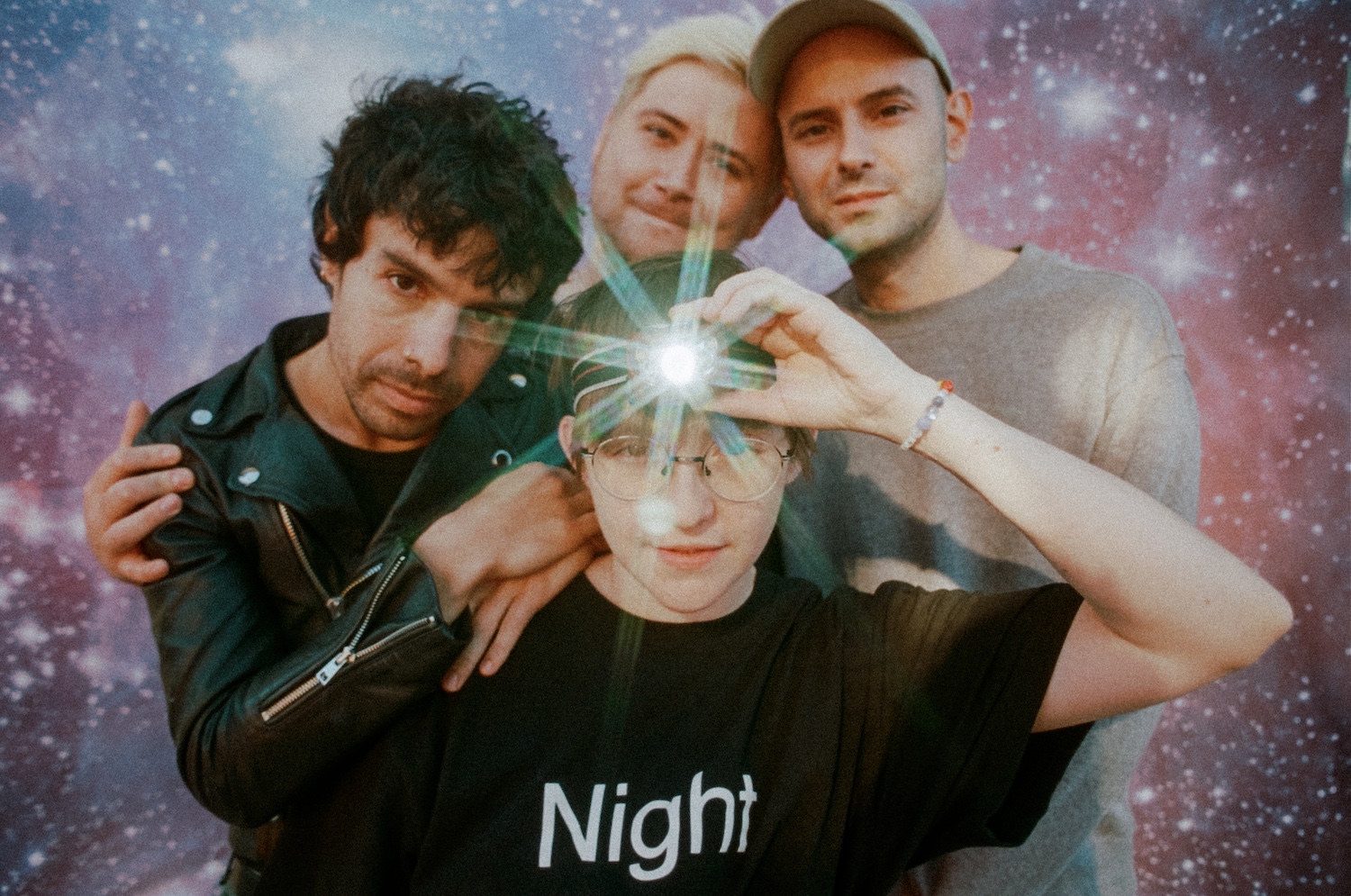
I’m thinking about dying again – the only thing that visits my head now…
* * *
There is a difference. I hadn’t really considered it up until I sat down with Jellywish, and heard Emily Sprague utter that phrase, near the end of the album’s first side, on “Started to Glow.” But there is a fine, or thin line, between the two. Of, as she puts it, “thinking about dying,” and something else.
Thinking about death.
And, I mean, yes, there are, of course, the similarities. And there is the space where those two things do converge. But for as similar as they may appear, or you may first believe them to be, they are truly dissimilar.
I am preoccupied with one more than the other.
Sometimes – not often, but often enough, I think about the idea of retirement. Of reaching the age one does retire. Once a year, my wife and I have a meeting with a financial advisor, where we go over, among other things, if we are on the right track, in terms of investing, and saving, in our planning for retirement.
The age, according to our financial planner’s estimates, at which I am set to retire is 70.
And there was a time, when I was younger, and a little more nihilistic, or more macabre than I am now, where I did wonder, part in jest, part in earnest, if I would make it that far.
There was a time when I was not confident I would make it to 40.
I will be 42 this year.
The age in our financial planner’s enticements, I am set to retire at, is 70. And more than anything else, now I think about not what life will be like 30 years from now, but what life will feel like for me, when I arrive at this point.
What difficulties I may have. What I may need help with. How embarrassing or humiliating or humbling that might be. What might hurt more than it does now.
The slow decline, and deterioration of the body.
You see, there is a difference between thinking about death and thinking about dying. I am preoccupied with one more than the other.
And one is much more gradual than the other.
I stop short of saying that Sprague is preoccupied with the notion of death, or “the end.” But it is a theme she returns to regularly in her writing – mentioned throughout Jellywish, in passing, I suppose, it is most prevalent in “Started to Glow.”
Musically, the song is arranged similarly, in instrumentation and tone, to “Our Hearts in A Room,” conjuring from the moment it begins, a somber, bittersweet, and autumnal tone, with the way the piano notes and acoustic guitar strums swirl together delicately, and the melancholic rhythm that they sway in, like a gentle, crisp breeze.
And as she does elsewhere on the album, working from a range that is a little matter of fact, and observational—borderline deadpan, borderline flat, even, as the song itself conjures a very specific feeling from the moment it begins, Sprague captures your attention with an absolutely stunning phrase turn in the opening line.
“I’m thinking about dying again,” Sprague begins, her voice calm, and hushed, before continuing. “The only thing that visits my head now.”
And like most of the other songs on Jellywish, there is structure within “Started to Glow,” but it is not traditional—following a pattern, and a melody, but there are no real verses or choruses to speak of, as Sprague continues delivering her lyrics in a dream-like, stream of conscious way.
“It’s freezing cold – I just walked past a tree,” she continues. “The ice looks like a beautiful face staring up. I’m thinking about dying again. Checking to see if the mail has come yet. I’m in the sea, you’re on the beach,” she observes, blurring a line between a kind of poetic ambiguity and the stark reality of her rumination, before arriving at one of the recurring images in the album.
“Bicycle. Car crash. Peacefully asleep.”
For as delicate and ultimately soothing, or comforting, as “Started to Glow” does end up sounding, the further into we go, the lyrics do not take a darker turn. I mean, how much darker can you get with an opening line like that. But there is a continued introspective bleakness as Sprague continues.
“It’s not like the rest. It’s not like the emptiness. It isn’t covered in earth, and I’m not closing my eyes,” she explains, creating an eerie juxtaposition within her own thoughts about “the end.”
“I dreamt about flying again,” Sprague sings in the second half of the song, returning to the familiar vocal melody the song began with. “The air felt warm. I looked down at the trees—everything I have wanted to say came out,” she continues, before exclaiming a startling lyric that, outside of “Started to Glow”’s opening line, is the thing that is going to stay with me the most from Jellywish as a whole.
“I love you. Oh my god. We f*ed up.”
Yes, there is certainly a darkness to “Started to Glow,” or perhaps more of a resignation of reality, as is found in a number of places across the album—not an acceptance, exactly, of how difficult, or just how awful, things often see, but rather an acknowledgment and a wish for something better.
“It doesn’t feel like the end,” Sprague attests in the song’s final lines. “It isn’t faded and blurred, and I’m not closing my eyes. Are you the single voice I have always heard,” she asks. “When we fall down and become the dirt.”
“I’m thinking about dying again,” Emily Sprague confesses at the beginning of “Started to Glow.” “The only thing that visits my head now.”
And there is a difference. I had not considered it, or the fine line between the two, before I sat down with Jellywish. The line between “thinking about dying,” and something else.
There are similarities. A space where those two things converge and I think the more time I spent with this album and analyzed Sprague’s writing, and the themes she has managed to pull from one end to the other, Jellywish does, at times, occur within the space that forms. It is in how you describe it. Or how you talk about it.
But for as similar as they may be, or as much of an overlap as there is at times, they are dissimilar. “Thinking about dying” and thinking about death.
I am more preoccupied with one than the other, though there are admittedly times that I, too, find myself in the center of that convergence. I think about what it will be like, and what it will feel like for me, 30 years from now, when I retire, and begin to rely on all of the money that has been set aside. I think about the phrase “quality of life.” I think about the idea of end-of-life care. What the body will be like, or feel like.
I am more preoccupied with one more than the other. I think about the water that I have been treading. I think about the darkness that there was a time certainly I thought I would be able to remain out from under but I no longer am confident that is the case.
I wonder, as I have so often, how sustainable an existence like this is.
I am afraid, as I have been for a long time now, that it is going to feel like this forever.
Emily Sprague is thinking about dying again, but across Jellywish, she, in a juxtaposition, is also thinking about living. Or at least life. And that isn’t easy. Giving “life,” and all that it means, consideration. But even in the moments when her writing here is bleak, it is never hopeless. There is a fragile optimism to her writing here—a want for herself, and those closest to her, and us as listeners, to notice the smaller, beautiful things around us, and to try to appreciate what we have, and who we have in our lives, while we are here.
Not everything has to be poignant, though it helps. And that is among the lines that Florist walks on Jellywish. Three years ago, when I was giving thought to the group’s self-titled album, the intimate warmth it was both assembled with, and radiated in listening, made it a record I described as not a “fun” listen, but one where you could tell that the people making it were having fun during the process.
There are poignant, thoughtful, melancholic moments on Jellywish that will linger, yes, and there are certainly places where the group is more focused on cultivating a kind of vibe – yes, there are places here where the song is admittedly fun to listen to, but there is still something missing. That warmth and intimacy are somewhere; I don’t doubt that. But it is not apparent this time out. This is not to say that Florist, as a band or a “friendship project,” has gone from being something fun to being looked at as “work” exactly, but in the concise structure of this record, things feel focused, or sharper which can be good, but that also gives it less of an organic feeling in a number of places – and makes it strangely rigid.
Three years ago, there was a duality or a multitudinous nature, to what Florist had put together for their self-titled record. But as you and I have grown or changed over the last three years, however long or short, or a time that might feel like for you, Florist, as a group, has also grown and changed. There is still a duality but in the way it is executed across the album’s 10 tracks, it makes for what does become an uneven listen.
That is, I suppose, a reflection of something much larger. Life itself. The human condition. There is an unevenness to our existence. And within that, we are encouraged to grab a hold of the things that strike us – moments of beautiful melancholy, and the small, wondrous things that we perhaps often overlook.
— —
:: stream/purchase Jellywish here ::
:: connect with Florist here ::
— —
— — — —
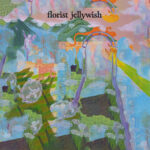
Connect to Florist on
Facebook, 𝕏, Instagram
Discover new music on Atwood Magazine
© V Haddad
Jellywish
an album by Florist

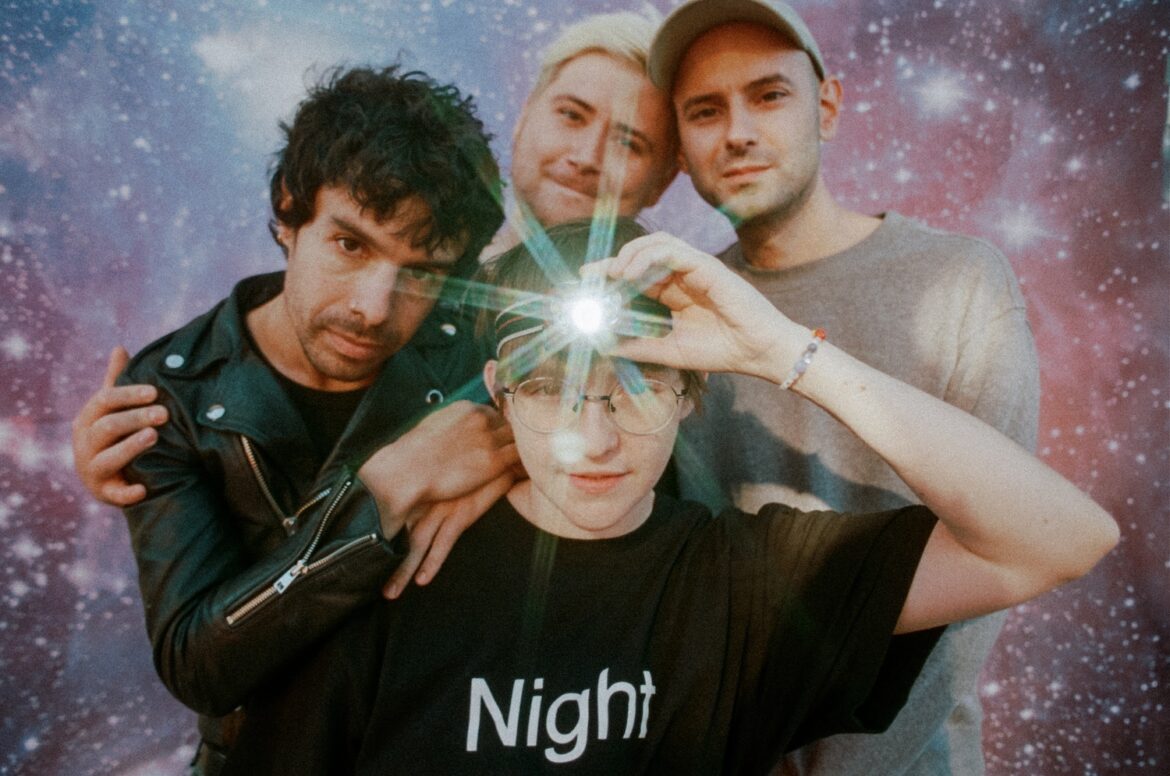
 © V Haddad
© V Haddad

